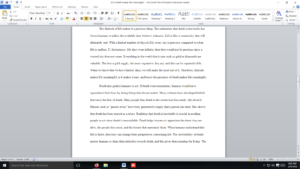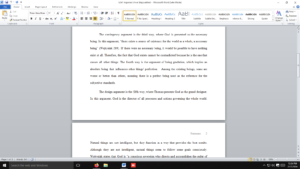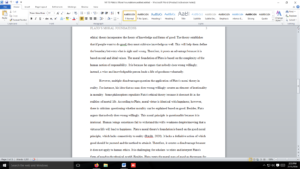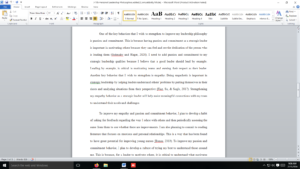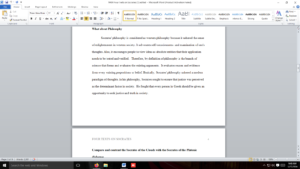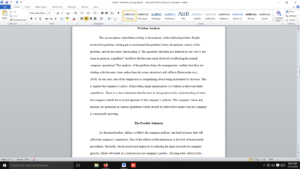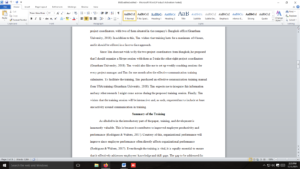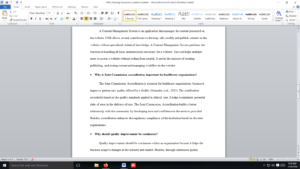Philosophical Debate
It should be between 1000-1500 words.
Please select a question from the list below, and make sure to clearly state the question you are answering at the start of your essay.
Questions:
(1) What is utilitarianism? Critically assess the plausibility of this proposal.
(2) What is euthanasia, and why is it considered to be morally different to murder or suicide? Is it?
(3) What do you think is the best moral argument for vegetarianism? Does it work?
(4) Does freedom entail the ability to have done otherwise?
(5) What is the harm principle? Does it pose a justified limitation on our freedom?
(6) What is Rawls’ conception of a just society? Is it is tenable?
(7) What, if anything, would be wrong in simply saying that anything counts as art so long as this is what was intended by the creator of the artifact in question?
(8) Can two identical objects differ in their aesthetic properties?
(9) Can one properly form one’s aesthetic judgments via testimony from aesthetic experts?
(10) What are Gettier-style counterexamples, and how do they challenge the classical account of knowledge?
(11) Is knowledge more valuable than mere true belief?
(12) Is ‘knows’ a context-sensitive term?
Answer preview
Euthanasia is a term that describes situations where physicians aid in the killing of a patient who is suffering from a particular disease or health condition (Shaw, 2020). The phenomenon is also referred to as mercy killing because it spares a patient of unnecessary pain when the end is inevitable. Physician-aided killing is not a straightforward concept because various situations fundamentally determine the nature of the procedure. The first factor that comes into play is a patient’s consent. Voluntary euthanasia is a process that commences with the patient’s awareness and approval. A patient may opt for physician-aided suicide if he or she feels that the medical situation has deteriorated and that the suffering is too immense to bear.
[1203 Words]
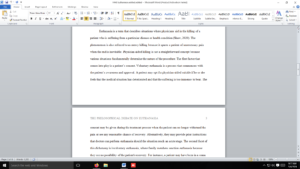
Philosophical Debate

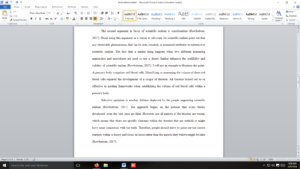
 Do not forget the Works Cited page. You can use
Do not forget the Works Cited page. You can use 
